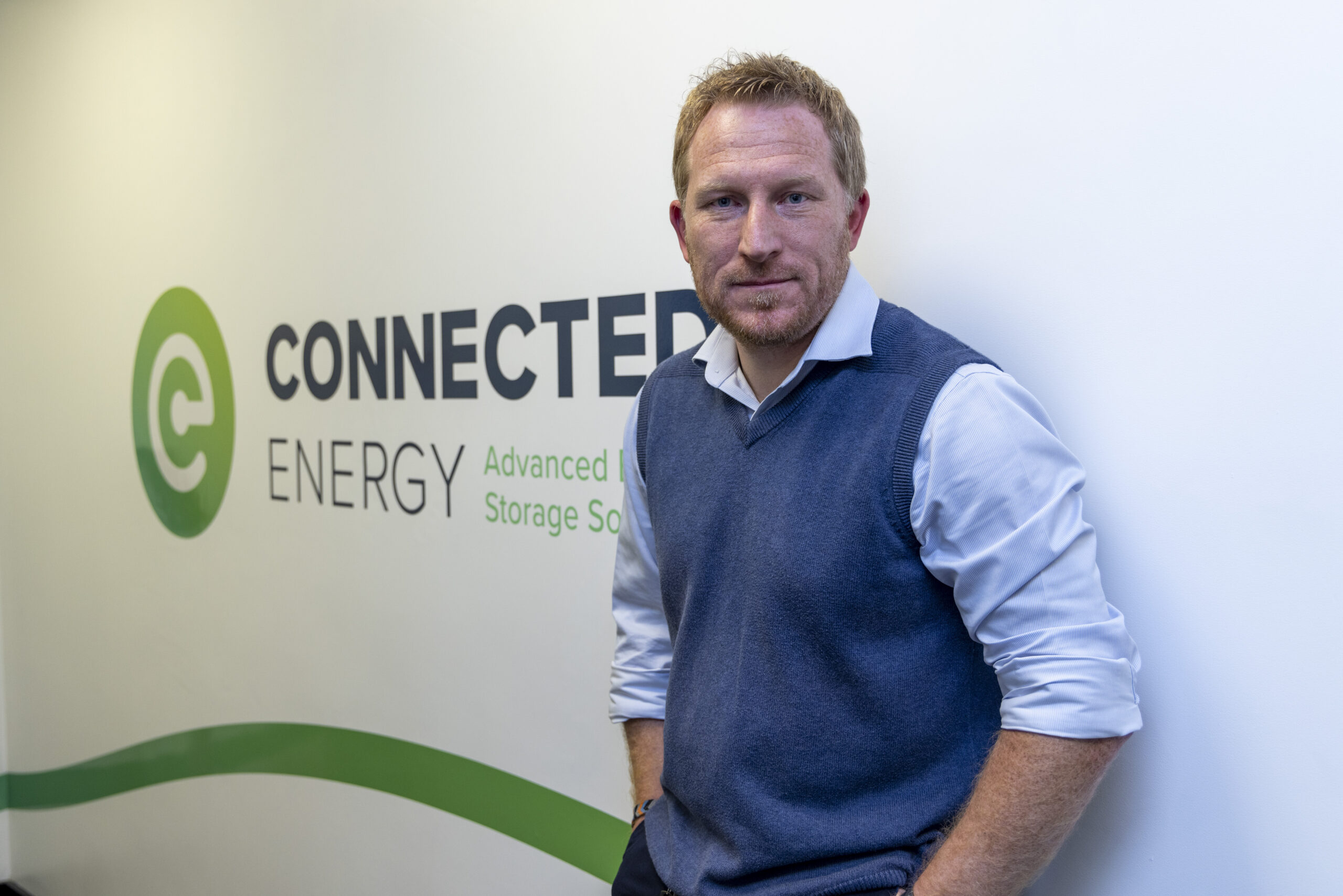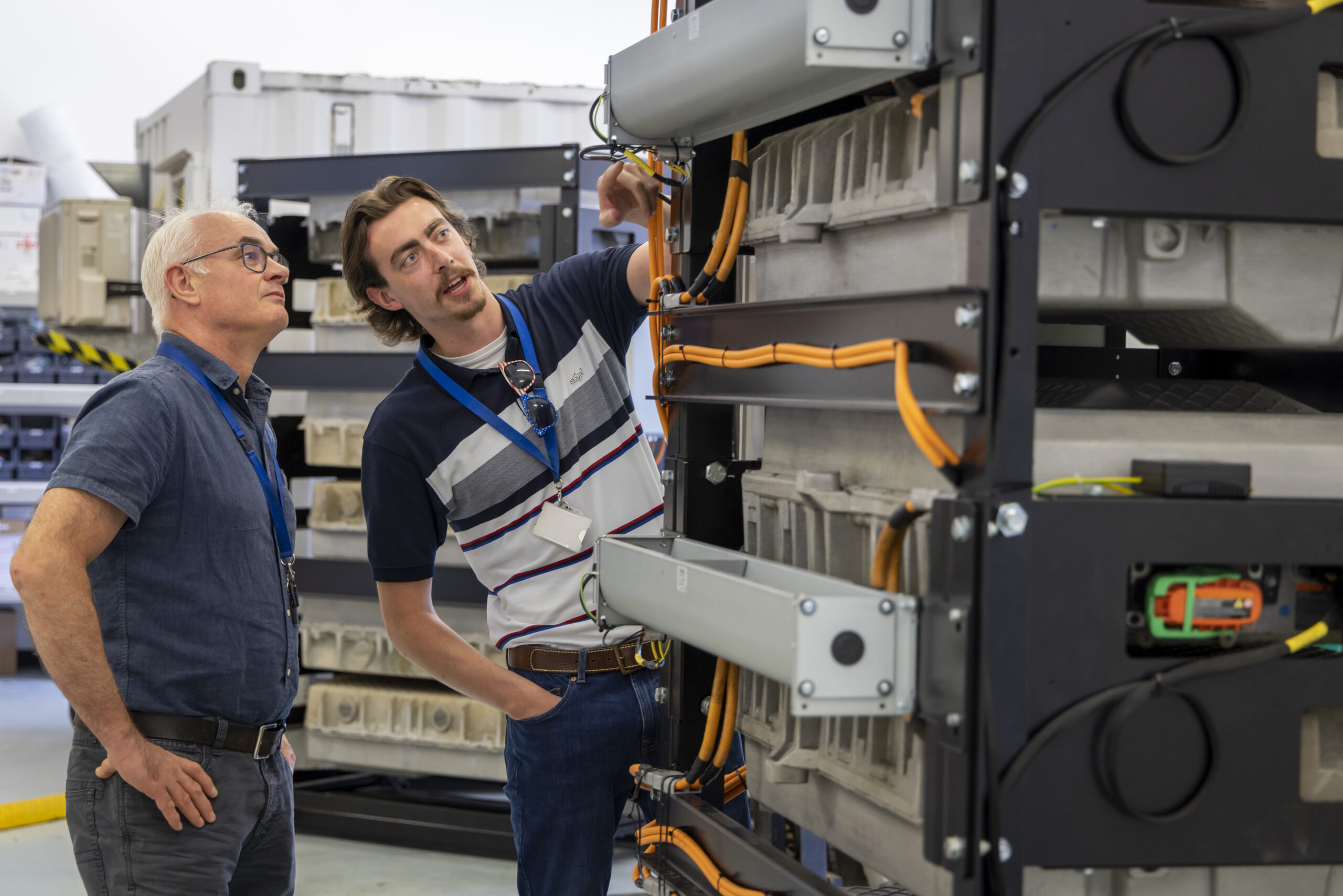A circular approach
Through this circular economy-based approach, Renault has supplied Connected Energy with second life batteries from its EV fleet. They are then repurposed as a storage system which is sold across the UK as well as in northern Europe, where they are being used to support EV charging hubs at motorway services.
Following recent investment and support from Volvo Energy, the company expects to expand to utility scale storage over the next two years using larger truck and bus batteries.
Matthew Lumsden, chief executive at Connected Energy, said: “The mission of Connected Energy is to maximise the use of the resources embedded in EV batteries by creating a storage system for energy generated from renewable sources. As the number of available second life batteries grows, this is a key moment to give them a new lease of life as part of the solution towards decarbonisation.”
The units can make the local network and national grid more resilient as they provide storage facilities for renewable energy. They also allow for more EV chargers in areas where there is a lack of grid capacity.
As part of the transition towards a net zero economy, they can save carbon by reducing the need for current fossil fuel reliant technologies to meet peak electricity demand and minimise resource and carbon-intensive network upgrades. Compared to first-life batteries, they also provide additional savings on materials such as lithium and carbon.
Connected Energy currently employs 20 people with all research, development and testing taking place at its technical centre in Hethel, Norfolk. Commercial and data teams are based in Newcastle.

"The mission of Connected Energy is to maximise the use of the resources embedded in EV batteries by creating a storage system for energy generated from renewable sources. As the number of available second life batteries grows, this is a key moment to give them a new lease of life as part of the solution towards decarbonisation"
Tackling the skills shortage
The organisation takes on graduate-level employees and more experienced graduates, often from within the automotive and engineering sectors. There are plans to set up a research and data facility in the North East and the company has links to Newcastle University’s engineering department to help address industry skills shortages.
Connected Energy has undertaken an outreach programme with local schools and has started a three-year research programme and partnership with University of Suffolk. Company representatives will work with students on campus and on-site, in Norfolk, where they will have valuable access to the Connected Energy battery system and data, to study performance.
Customer Mark Dale, of Suffolk County Council, says that the council are using the storage batteries for their energy trading initiative.
He said:” The Connected Energy product appealed because of the innovative second life battery use which also brought down capital expenditure for the council. We worked closely with Connected Energy during product testing and received thorough update reports. They were very supportive during discussions to choose an aggregator, sat in these meetings and assisted in assessing the financial models. We experienced excellent relationship and project management from their team.”
According to a study carried out in partnership with Lancaster University, carbon savings from producing second life batteries are estimated to be 144tCO2/MW with these expected to rise as recycling technology improves.

